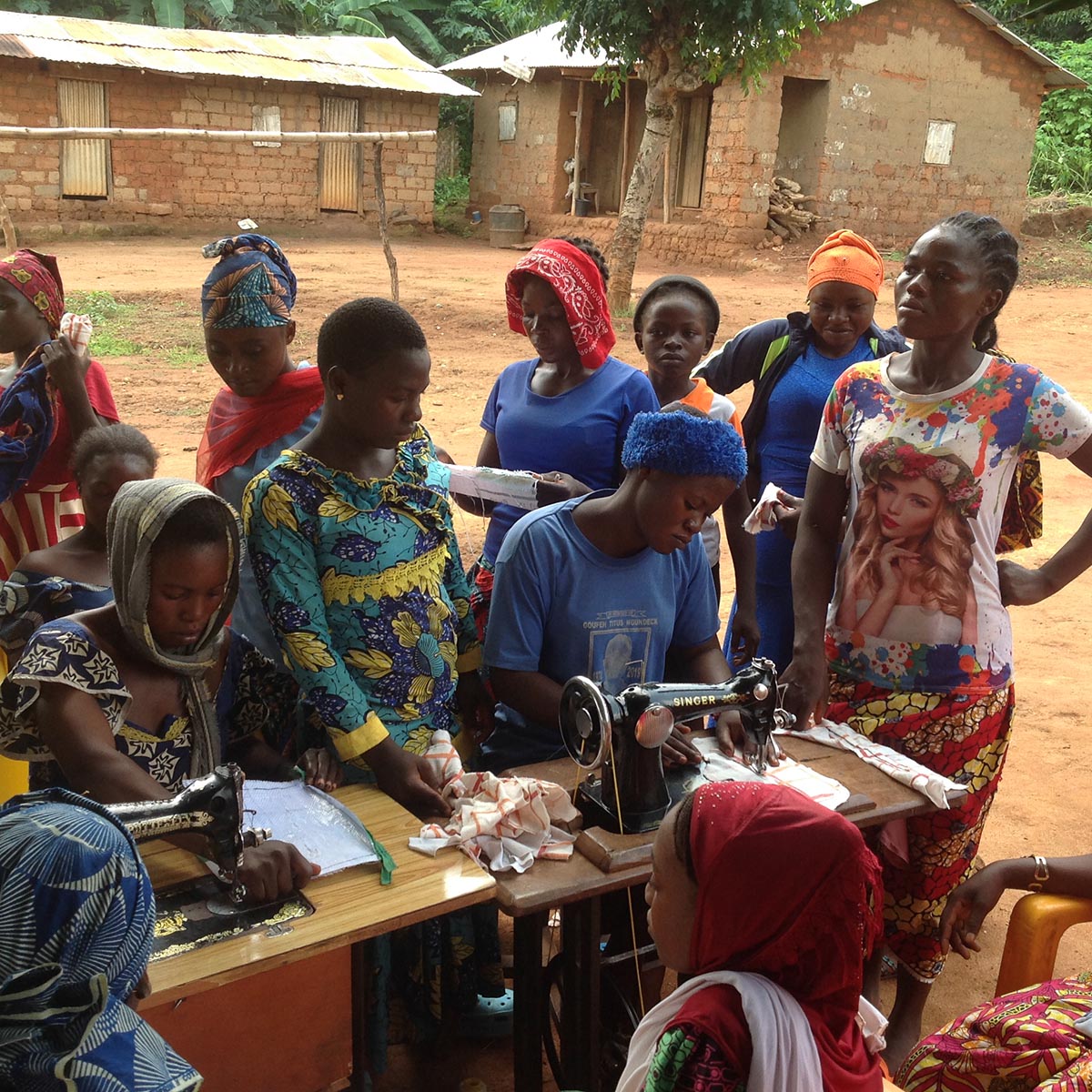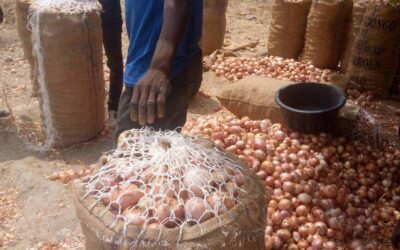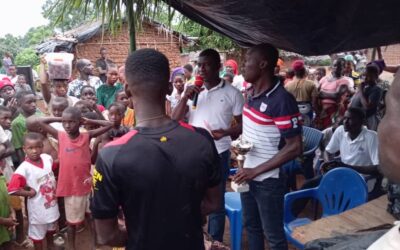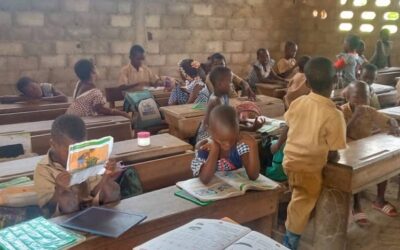Managing Menstrual Cycle Helps Birth Control
August 21, 2024

Transformational Community Development (TCD) lessons are gradually resuming in Bankim cluster after a long dark period of uncertainty. It was a joy seeing the community uniting over 50 teenage girls aged 11-25 and some women to talk about their menstrual health. The central theme for the training was “Making menstruation a normal fact of life by promoting the wellness of female teenagers”. Teenage pregnancies and school dropouts at Bankim is a daily reality and the parents have to live with it. Six out of ten girls are single mothers, while only two out of ten attain secondary school.
Nadage, aged 21 a Form Four single mother with two children, recounts her first menstrual nightmare. “I was living with my aunt who was very strict. While in Primary Six, one night while sleeping duringn the holidays, I felt some wetness on my legs while sleeping and immediately got up from bed, went outside and realized it was blood. It was a rainy night. I washed it and went back to bed. I could not immediately sleep again, though, wondering if God was punishing me for my stubbornness towards my aunt. I did not have the courage to approach her since she is hardly open to talking apart from reprimanding. I spent my next four days always standing up. I thought I would dirty anything I sat on.
“The following year, I went to secondary school. My first class was Biology. Luckily, it was a female teacher and our first lesson was on female menstruation awareness. She advised us to use a pad whenever it began. So at home, I cut pieces of cloth and started using them since I had no money to buy disposable pads. When I realized what was happening to me, I regretted not telling my aunt what had happened to me, but I educated my younger sisters to be aware of their bodies”.
This story is typical of situations in rural communities where children are suffering without knowing how their body functions. Traditional beliefs and taboos also influence the health of female children and women.
Despite knowing about menstruation, Nadege did not know how the menstrual cycle functions and ended up with two teenage pregnancies which impacted her education. “This TCD lesson has helped me to use my calendar effectively.”
Together with Mrs. Fadimatou, Aminatou formed the newly elected Wellness Committee with 10 other girls who worked hard during the lessons to merit prizes. They now form a committee of 13 members that will take charge of the health in the community.
Our lessons focused mainly on the awareness, management, safe disposal, and preparation of reusable sanitary cloths using available local resources, low technology, and low cost. The girls were advised to take personal hygiene very seriously, washing hands with soap, and changing and wearing clean, dry underwear every day.
At the end of day one, the highlight of the lessons was learning to prepare reusable menstrual pads. Some girls were sent to the local market to procure vital pieces of cloth. The participants were provided with pieces of cloth of different textures. A simple design was provided as a model for all to use in cutting the pieces. Simple equipment, scissors, hand needles and sewing machines and thread, were available. Participants were able to stitch or sew reusable pads following the desired designs. These handmade or machine sewn menstrual pads are cheap and can last up to two years with care. On a yearly basis, women spend over 8400 XAF on disposable pads while 1500 XAF suffices for a set of reusable pads for two years.
Yenjo also has her story to tell but was elated to know the cheap nature of the home made pads compared to the disposable pad. She has three children with the last one 10 months younger than the second child due to poor management of her menstrual cycle. “Henceforth, I will invest in a reusable pad. The income difference between the two will help me buy more food for the family. I also learned how to prepare a menstrual cycle bag to store the reusable pads safely.
Kuta shared, “Every time my husband needed to have sex, I was available for it without any precaution. This led to unwanted pregnancies. Now as a mother of three, I can now count and follow my cycle, thereby preventing future unwanted pregnancies.”
Thank you!
Written by: Eugene
GHNI Partner
Latest Stories from AFRICA
Overpowering Poverty with Onions
A snapshot of the direct benefits of the Income Generation lessons given by TCD.
Celebrating a Huge Success
As Effaoho Village continues to work together and prosper, their steady steps are being noticed by the surrounding communities.
Brokering Peace
The people of Attakasikoro Village are working on a foundation for their school and a foundation for their future interactions with members of the community.



